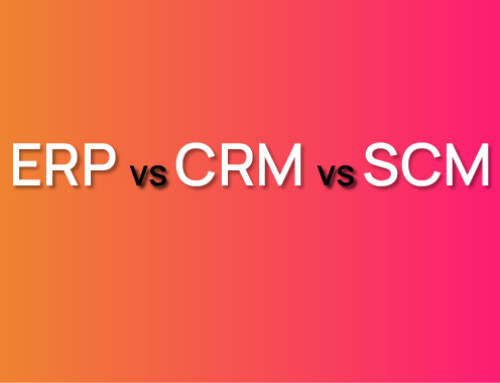Contents
Although the term “solopreneur’ is hardly heard in everyday conversations, the figures indicate that solopreneurship is one of the fastest growing types of business. There are many advantages to being a solopreneur. Having flexible working hours, requiring little to no initial investment, and having no boss around are only a few of the advantages of being a solopreneur. Another reason behind the increasing popularity of solopreneurship is the restrictions that were brought about by the pandemic (COVID-19).
The word solopreneur is coined from the words “entrepreneur’ and “solo,” meaning an entrepreneur who works by himself/herself. But how exactly is a solopreneur different from an entrepreneur? While it’s true that an entrepreneur usually starts by managing the business single-handedly, a solopreneur starts the business all by themselves AND they do so with the intention of remaining a solo project. It’s worth mentioning that this pattern could change at some point in the future of the business, and other members could be employed.
Obviously, not all sorts of businesses are suitable for solopreneurship so let’s check out some of the most successful solopreneurs who made it all by themselves. These examples might provide you with inspiration and ideas to become a solopreneur yourself.
Ingvar Kamprad, IKEA
Let’s begin with a more classic example. Most people have heard the name of the famous owner of IKEA. But how did he make it to the top? Born in 1926 in Sweden, Ingvar Feodor Kamprad was keen on trading from an early age. He used to sell matchboxes in his neighborhood as early as five years old. As a teenager, he would enjoy trading all sorts of stuff, from fish to seeds to stationery items and basically anything he could make a profit from. When he was only 17, he established what would become the most successful furniture company in the whole world, IKEA.
The first factory was located on his uncle’s kitchen table! Still, in less than 3 years, he managed to add many new items to his list of products. His natural talent in the business and cost-effective production methods paved the way for his outstanding success. The popularity behind his products was due to the company maintaining a blend of high quality and unbelievably low prices, making it very hard to compete with. Today the business magnate has a net worth of about $59 Billion.
Marie Forleo, Business Coach
The famous business coach Marie Forleo describes herself as a multi-passionate entrepreneur. The successful millionaire creates and offers lots of free content, some of which you can download from her website. She keeps a close and friendly relationship with her fans, answering their questions through videos. In her award-winning show called “MarieTV’, Forleo interviews the hottest names in the business industry. But there’s more! Her diverse online business courses are by no means less popular than her weekly show. If you want to discover some of the life-changing ideas of this superstar, make sure you buy her best-seller by the name of “Everything Is Figureoutable.”
Erika Leonard, Author
Many fans know her by her pen name, E.L. James. One of the wealthiest writers in the world, Erika Leonard, is from Britain. Mostly famous for her series of novels called “Fifty Shades’, she is a shining example of solopreneurship. With a net worth of around 150 million dollars, she has been able to sell over 125 million copies of her novels all over the globe. These novels have been translated into over 40 different languages.
It is a famous story that the novel “Fifty Shades of Grey” (which was made into a movie) sold so many copies so quickly that Britain actually ran short of ink. Her unexpected and sudden success shocked her, especially since writing erotic novels was more of a hobby for her.
Sara Blakely, Spanx
Ranked 23rd in the list of “American’s Self-Made Women,” Sara Blakley is the creator of Spanx. While her net worth is over a billion dollars now, her success story started with nothing but a simple idea. It came to her one day when she was getting dressed to go to an event. She didn’t like having her pantyhose’s seam exposed as she was going to wear open-toed shoes, so she cut off its feet. She would later go on offering the idea to numerous companies before one finally gave her a shot. The result was that a once somewhat poor Blakley made 4 million dollars during the first year of launching the product. The rags-to-riches hero of our story believes her courage and perseverance were key to her success.
Markus Frind, PlentyOfFish
Markus Frind is the mastermind behind the popular dating service called PlentyOfFish (POF). Frind launched the platform in Germany in 2003, and since then it has attracted millions of users from all around the world. Though the company was located in Germany, it was especially popular in Canada, Britain, Australia, and the US.
Frind studied computer systems technology at the British Columbia Institute of Technology. After graduation, he worked as a system analyst, cybersecurity, and web developer in different tech companies. But just like other successful solopreneurs in this article, there came a time when he told himself, “That’s enough. I need to begin working for myself.” Right now, the number of active users of PlentyOfFish is over 1.5 billion, which is nothing short of a miracle for a solopreneur. The company’s yearly income is a staggering $100 million, making Frind one of the most successful solopreneurs of our time.
Anastasia Soare, Anastasia Beverly Hills
There are many make-up tutorial video creators out there, but few people have been as successful at making them as Anastasia Soare. The founder of Anastasia Beverly Hills became a make-up icon before the era in which social media made the road to stardom easier. Yet she is no stranger to social media — her Instagram page, which Soare managed herself, is the second most followed among all beauty pages. Although famous and well-off now, she immigrated to the US from Romania in the 80s when her knowledge of English was really poor. Now her lucrative business is located in Los Angeles, where she has clients such as Jennifer Lopez and the Kardashians. Known for using the Golden Ratio in her work, her net worth is estimated to be about $1.2 billion.
Pierre Omidyar, eBay
Omidyar was computer savvy from an early age. During his time in high school, he wrote a program for the school’s library to print catalogue cards. He later went on to work for a couple of computer companies but what led to his massive success came as a sheer accident. Pamela, her then-girlfriend, was a Pez dispenser collector but was desperate to find people with a similar hobby. Omidyar created a website through which collectors could trade and communicate with each other. Very soon, the humble project became popular and attracted all sorts of collectors; the rest is history. At the time, the service was free, and as it attracted too many users too soon, the servers could often be overloaded. Therefore, it had to be moved to a sizeable platform that could host all the growing users. Today eBay is a household name, and there is barely anything you cannot find on it. At the moment, Omidyar’s net worth is estimated to be around $12.4 billion.
Allen Walton, Spy Camera Designer
Once again, the success story starts with failure. Walton was always a horrible student at school. His job after graduating high school was just as bad as his school days. He would make 11 dollars an hour by working in a camera store, but it all changed with one single idea. He set up a website for selling spy cameras. In less than a year, Walton found himself to be a millionaire at the age of 27. All Walton had to invest to start his business was 1,000 dollars. Now his website named “Spy Guy Security” offers over a hundred different products for spying. It should also be inspiring to know that Walton has been in charge of his own marketing all along by self-studying the matter.
Charmaine Pocek, Business Counselor
The success story of Pocek starts with being a freelancer on Fiverr. She used to make a modest salary by writing resumes, so she could help support her family. Later in her career, she established a website and extended her business by offering to counsel entrepreneurs. She became so successful that she soon charged clients up to $800. The example of Pocek shows that a successful solopreneur does not necessarily have to offer anything completely novel as long as the service or product is of high quality and the right marketing strategies are applied. In retrospect, she admits that at first, she was intimidated by starting a career in which she had to do all the work by herself. She was also well aware that she had to outdo a lot of competitors to stay in business, but the leap of faith she took eventually paid off. Today she is delighted with her job, and her average monthly income is $38,000.
Morissa Schwartz, Author & Business Coach
Morissa Schwartz is a best-selling author and the owner of a publishing company called GenZ Publishing. She has a Ph.D. in Arts and Literature from Drew University. When she was only 13, she was appointed as the advisor to Junior Scholastic Magazine. The prodigy published her first book named, A Career in Contests, at the age of 16. The book is intended to teach its readers how to win online skill-based contests.
And as if that is not enough achievement already, she also has a podcast called The GenZ Podcast. In it, she hosts and interviews innovators, artists, entrepreneurs, etc. Yet another activity by the talented Schwarz is performed through WCEC, a division of the SBA. She teaches the latest techniques in starting and developing a business. Wait, there’s more?! Yes, she sells music through Fiverr. It’s too long a list of achievements to fully cover in this article, but the most amazing fact is that in almost all of her activities, she is the sole manager. So maybe not everyone is as talented as Schwartz is, but then again, a solopreneur does not need to be great at so many diverse tasks anyway.
Vishen Lakhiani, Mindvalley
Vishen Lakhiani was born in Kuala Lumpur, Malaysia in 1976. His story is particularly inspiring as he had to fight various difficulties since birth. He is known to have poor eyesight, Asperger syndrome, and skin complications. Yet none of these physical deficiencies has been able to hold him back from actualizing his potential. Lakhiani studied Computer Engineering at the University of Michigan before he started working in Silicon Valley. He later established three companies by the names of Mindvalley, Dealmates, and Blinklist. Mindvalley offers products concerning personal spiritual development. Omvana is a meditation app that is one of the most popular products of Mindvalley. There are also courses in various areas offered by Mindvalley such as mindfulness, personal growth, fitness, and health.
For those that are still under the impression that successful solopreneurs should have a hefty initial investment, it is worth mentioning that Mindvalley started its life with $700. Do you want to know its current value? It is estimated to be over $120 million. Lakhiani has also written many books, among which The Code of the Extraordinary Mind ended up a New York Times bestseller. The book has sold over 100,000 copies worldwide. In 2015 Lakhiani was awarded the “Best New Idea” at the XPRIZE’s Visioneering event in California.
Adam Horwitz, Marketing Coach
How would you like to be a millionaire and own a house in Hollywood Hills before the age of 18?
Bet you wonder how it feels; you should ask Adam Horwitz. He is an exceptionally successful self-made entrepreneur and a Youtuber. He created Mobile Monopoly, which is a mobile marketing course when he was only 15, and just like that, he made $1.5 million in 3 days! He went on to create Mobile Monopoly 2.0 and reached higher peaks of fame with his Youtube channel WOLVES. His net worth is $75 million. In 2011 he launched a texting service called YepText, which helped businesses stay in contact with their customers. His Instagram endorsement posts earn him between $685.5 to $1,142.5 each. Not bad, huh?
Coaching, in general, is one of the more popular ways for solopreneurs and infopreneurs to monetize their experience and knowledge. Like all other types of solopreneurship, coaching comes with some hassle and some rewards. For example, the most critical hurdles in coaching are scheduling and payment. That is why making it big as a coach or consultant means finding a way to handle admin tasks like scheduling and invoicing. That’s where specialized CRMs and business management software like RunSensible come in. With RunSensible, you can combine invoicing and scheduling, making sure that any appointment you have is already paid for by the time you’re notified.
Redd Horrocks, Voiceover Artist
Heavily in debt, Horrocks found herself in a dreadful situation. That’s when she decided to offer her voiceover talent as a side hustle. Before long, she quit her previous job to become a full-time voiceover artist. Over time she acquired marketing techniques that snowballed her growth rate. One turning point occurred when she created a video in which she introduced her offers clearly and included some samples of her works. That one simple marketing video was a game-changer. She says it helped her clients clearly understand what they can get.
The number of her clients soared after that. Horrocks spends 30 hours a week doing voiceovers in a studio. Another 6 hours per week is spent on customer management and marketing. She says her annual salary is around $150,000, three times the amount she used to make in her previous job. Her advice for solopreneurs is to invest a great deal of time and attention in making the best possible presentation of one’s business.
Levi Newman, Copywriter
Speaking of successful solopreneurs, let’s not forget the freelancers, who are also kind of entrepreneurs. Newman Spent ten years of his life in the US army. After that, he found a job as a copywriter for a real estate company specializing in Veterans Affairs loans. Newman finally got tired of the job and started to freelance in copywriting. Since then, he has had clients from over half of the countries in the world, made possible by only having a laptop and an internet connection. He says that now he can choose among a long list of things to write. He has been offered to write personal emails, business emails, different sections of websites, and Facebook pages. Once he had too many orders, he increased his prices. He says he currently makes about $15,000 a month. Newman says he is very happy that he doesn’t have a boss and only writes the orders that he likes. Another cause of satisfaction for him is the working hours. They are very flexible, and he says he can travel anytime he likes.
Mark Anastasi, Author
Can you believe there is a solopreneur on this list who used to be homeless? Perfect rags-to-riches story. Right? There was a time when Anastasi was unemployed, $12,000 in debt, and miserably homeless. So how did things change for Mark? He wrote an ebook about alternative therapies and put it up for download on Clickbank.com. With the help of a marketing expert, he managed to direct traffic to the website and sell his ebook for $67 per download. His next book, called The Laptop Millionaire, is about making money online. Currently, he is making $10,000 a month for having written a few books — all of it passive income. So if a homeless person can be a successful solopreneur, maybe there is hope for almost anyone. Another takeaway from the story is the importance of a marketing expert. Without his guidance, Mark’s success was simply unattainable.
Spencer Koppel, Geek2Geek
What happens when a geek decides to help other geeks find love?! The answer is he becomes rich. When Koppel retired, he decided to use his free time to set up an online matchmaking service. Koppel describes himself as a greek, and his website Geek2Geek.co is intended to help geeks find each other. Koppel is the sole workforce responsible for keeping the service going. Imagine what great ROI it means for him! His costs consist of the website maintenance and server fees, and he gets to keep the rest of the money to himself. After only five years, his service has gathered more than 60 thousand paying users. His example goes to show that age is irrelevant to starting an online business. But it certainly needs excellent social skills. Right? Wrong. Our self-proclaimed GEEK probably did not deploy a lot of social skills to make his online business work!
It seems that what makes these kinds of successes possible has to do with courage and persistence. We are sorry if we are dismantling anybody’s excuses to stay passive!
Justin Goff, Author, and Entrepreneur
You are 27, and all you have in the world amounts to $2,000. In fact, things are so bad that you are on the verge of moving back to your parent’s place. What do you do?
Justin Goff decided to fight back. He put together all his marketing knowledge into an ebook that eventually saved him. While still broke, he would spend $100 on Facebook ads every day. Even under the pressure that he must have been under, he taught himself how to write influential Facebook ads. You have to give it to him for taking such a risk. One needs to be very confident about the prospects of their book to invest the last dollars they own (talk about betting your bottom dollar). His efforts were not for nothing. He went on to make over one million dollars through selling his ebook.
The ambitious solopreneur used his new capital and the marketing experience he gained to start another project. His latest ideas led to the creation of a company called Patriot Health Alliance which sells energy supplements. Once again, his courage paid off, and his business soon earn him another million dollars.
Ashley Qualls, Website Manager
At the age of 14, Ashley Qualls designed a simple and small website from her basement. The website called Whateverlife.com, which started as a hobby for a teenager, offered free layouts for Myspace and a few simple tutorials for HTML. However, it didn’t take long before her website clicked with teenagers, and at the age of only 17, Ashley was a millionaire all through charging ads on her website. Whateverlife.com draws over 7 million visitors every month. Since her success as a teenager, Ashley Qualls has been involved in different philanthropic projects.
Perhaps the takeaway could be the importance of finding the right niche in the market. It might have come to Ashley by chance, but the point is that she did a fantastic job of attracting a specific age group. So, devising the right buyer persona and targeting the right segment of a market can prove to be just as important as offering a high-quality product or service.
Daymond John, Fashion Designer
Daymond John is a famous fashion designer mainly known for establishing the Hip Hop clothing brand called FUBU. Born in New York, he showed a passion for doing business at an early age. John used to sell anything he could find a buyer for and that included items such as pencils or toy cars. Things weren’t always super jolly for him; he even worked as a waiter at one point in his life.
It all started in 1992 when the ambitious John started to make hats in his mother’s basement and sell them around his neighborhood. But like all successful businesses, it extended production to include T-shirts, hockey jerseys, and baseball caps, the most popular types of clothing for teenagers. FUBU stands for For Us By Us, and John would put this label on all of his products. But it wasn’t until the rapper LL Cool J promoted him that the business took off and FUBU became trendy, especially among the African American youth and Hip Hop fans.
Since its inception in 1997, the FUBU foundation has been donating $1 million to charity every year. Later successful projects included FUBU Entertainment and FUBU Records. Daymond John’s net worth is estimated to be around $400 million.
Tim Seidler, Web Designer
Just like many others, Tim Seidler started his solopreneurship as a side hustle. The father of two kids, he had to do an 8-5 job. To boost his income, he started to design websites. Of course, at the time the thought of making 6 figures a year was a distant one, although in fact, it came about really soon. Key marketing services that directed traffic to his website and facilitated his success were Google Adsense and Media.net.
He later said that he had made the right choice to have kept his full-time job while working on his new project. He believes the minimum financial security was crucial in allowing him to make his dreams come true.
What to Take Away
The examples of successful solopreneurs in this article might have provided you with ideas on how to start your own business. Therefore, it may be beneficial to finish by reviewing some of the key features successful solopreneurs have in common.
- One thing that is invariably present in success stories related to solopreneurs is their durable persistence when it comes to their objectives. Novel ideas seldom receive support when they first emerge. So, it really comes down to the solopreneur to keep on trying.
Perhaps we all had a brilliant idea at some point and even fantasized about making millions off it. For some reason, the majority of those ideas are never tried at all. And among people who actually do try to make a business out of their ideas, very few are tough enough to withstand the hardships that come before success finally occurs. Finding the right market segment can take time, so be patient and don’t give up too soon. Of course, many entrepreneurs decide to go infopreneur, selling their knowledge or expertise directly, without the hassle of starting a business and seeing it through to a profitable stage.
But maybe that also means there are fewer tough competitors than you normally imagine in your field of interest. And maybe if you believe in yourself more than your competitors believe in themselves, you actually have a good chance to be on our next list of successful solopreneurs.
- Another thing to keep in mind is to be courageous. The old saying is certainly true about modern business, “luck favors the bold.” If you don’t make bold moves, you will never know if you ever had what it takes. 9-5 jobs can always wait for you, but to keep your passions alive, you need to push yourself and even get in the habit of enjoying risk-taking.
- It’s amazing to know that almost all of the successful solopreneurs were actually very passionate about their activities. This passion might be one of the reasons that they kept them going even when the conditions were not favorable. Therefore, it is important to choose the field of your business not only by its financial prospect but also by the degree you actually enjoy pursuing it.
- One should never make the mistake of underestimating the importance of marketing. You could have the best service or product but still, fail because you didn’t use the right tools or marketing strategy. As a solopreneur, you’ll have to handle marketing yourself, but with the right tool, it will not be that hard. Runsensible is an all-in-one marketing tool with features designed to quickly turn the tables in your favor. With email marketing, text messaging, business phone, landing designer, lead generator forms, and other features, RunSensible can make all the difference for a solopreneur. Despite its many powerful features, it’s really affordable, with no hidden costs and no tiered plans that force you to upgrade and pay more. You can try it right now (without credit cards) or request a demo to take you on a tour of the software.
FAQ
What is a solopreneur?
A solopreneur is a person who establishes and manages their own business all by themselves. This means that the initial intention of the business is to maintain things as a one-person project, not involving any co-founders or employees. However, after reaching success some solopreneurs change their policies and start hiring employees. At that point, they no longer fall under the solopreneur category.
Are solopreneurs different from infopreneurs?
Yes. The first big difference is that the business of an infopreneur chiefly focuses on providing information, whereas a solopreneur can offer any kind of product or service, as long as it is done independently.
What do successful solopreneurs have in common?
One central characteristic shared by solopreneurs is their perseverance. You are running a business on your own and if things don’t go your way, there is nobody around you to help boost your morale. You have only yourself to rely on until success finally shows up. So, you can see why persistence is an essential ingredient. Another interesting characteristic visible in most of the stories written about successful solopreneurs is their extraordinary passion for their job. Their passion keeps them going even when people around them are uncertain of their prospects. It seems that those who are solely in it for money, don’t persist long enough for financial success to emerge.
How can I become a successful solopreneur?
There are many ways to approach being a solopreneur depending on what you plan to offer. But, here are some fundamental tips to help you have a better start. The first step is to find your passion and see how you can use it to improve people’s lives. That also helps you have a better understanding of your potential customers. It is always a wise idea to find a niche in the market. Research on the internet and analyze the weak and strong points of people who are doing what you are planning to do. Study different business models to see which one fits your ideas best. And most importantly, learn about digital marketing and how to devise strategies that suit your business model.
Disclaimer: The content provided on this blog is for informational purposes only and does not constitute legal, financial, or professional advice.






